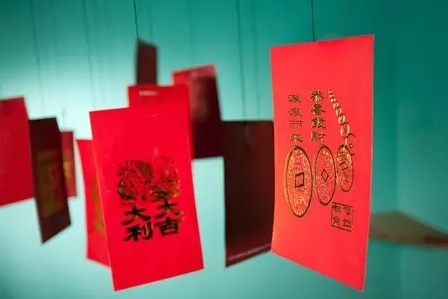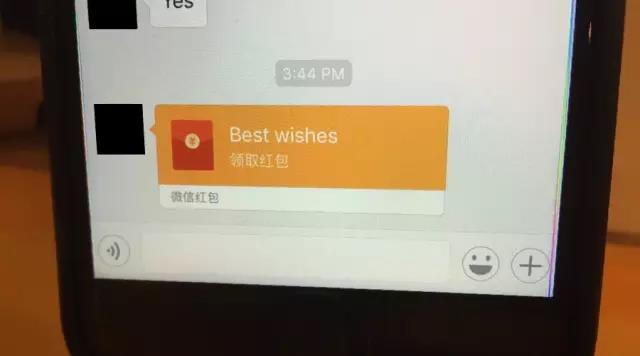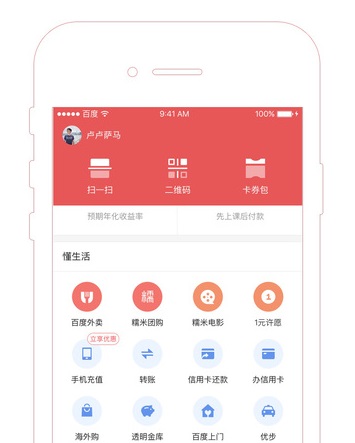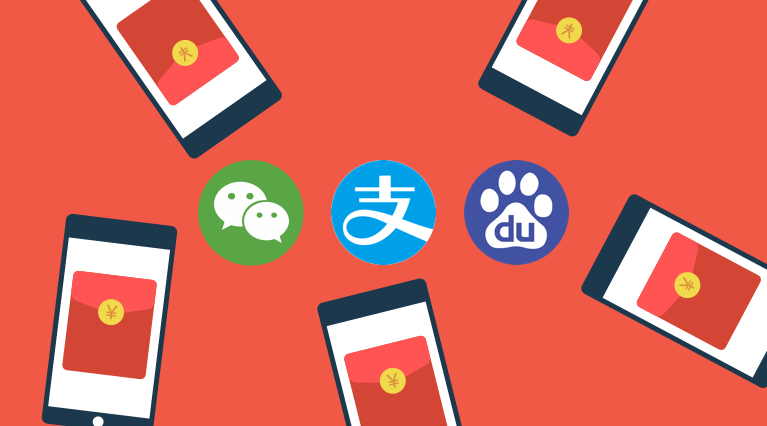Last Updated on May 10, 2024
Much has been said about the three-way battle between Chinese internet giants Baidu, Alibaba and Tencent (commonly referred to as China BAT) and the different digital fields in which they compete, including e-commerce and mobile payment.
But despite being a fiercely competitive “market” with the potential to influence each company’s long-term success in China, little is actually known about the impact of digital red envelopes on the Chinese internet industry and what we can expect from this mysterious feature in the near future.
Today we’ll be taking a closer look at what the Chinese call “hongbao” and detailing the manner in which this ancient Chinese tradition became a quintessential aspect of China’s digital ecosystem.
Once we’ve understood why, how and to what extent China’s different internet players have entered the digital hongbao(red envelope) market, we’ll briefly ask ourselves what the future may hold for digital hongbao and the companies who made it a reality.
Without any further ado, let’s clear up any misunderstandings and define the concept of Hongbao.
What is hongbao?
If you live in China, and therefore use WeChat on a daily basis, you probably know all about the concept of hongbao and the importance the tradition holds here.
But for those of you who’ve just arrived in China or who are studying Chinese digital trends from abroad, hongbao basically refers to the tradition of offering red envelopes filled with money to friends and family during special occasions such as weddings, the birth of a baby or the Chinese New Year.
 Hongbao Envelopes
Hongbao Envelopes
Recently though, despite the fact that offering monetary gifts in red envelopes has been common practice in China ever since the Qin Dynasty, sellers of physical red envelopes have had to face a significant decrease in demand.
While this could just mean that the tradition is fizzling out, recent developments in the digital hongbao field would certainly suggest otherwise.
Why, how and to what extent have China’s major internet players entered the digital hongbao market?
Hongbao’s digital shift
By now you might be wondering what 3 major internet giants, who dominate the largest part of the Chinese digital landscape, could possibly find so interesting about digital monetary gifts and how they could use this market to strengthen their business.
So basically, their reasoning is based on the belief that seeing as users would need to download a mobile payment app in order to receive or give away money, entering the digital hongbao market is a great way for the big industry players to drive more users to their respective payment tools.
That said, there’s no actual proof that there’s any correlation between an increase in digital hongbao sent and an increase in monthly active users and it’s not hard to imagine that some users may download a particular payment app to benefit from its financial offerings before switching back to another one.
According to certain Chinese economic experts, the digital hongbao war is as much about face-saving and pride as it is about financial prosperity and the fact that Alibaba’s founder Jack Ma compared Tencent’s first red envelope promotion to “the Pearl Harbor Attack” certainly seems to confirm that theory.
What started the hongbao war?
Although there’s some debate over who came up with the idea of digital hongbao, it’s fair to say that the first appearance of the modern hongbao as we know it today dates back to January 2014.
2014 red envelope war
At the time, Tencent were looking for a creative way to get more users to adopt the Wallet feature on WeChat in time for the crazy-spending Chinese New Year period.
But rather than just release a feature allowing users to send a gift containing a certain amount of money to a certain person, as Alipay were already doing at the time, Tencent decided to equip WeChat’s “lucky money” feature with a gamification mechanism that went instantly viral.

For the very first time, WeChat users who’d linked their debit card to WeChat Wallet could offer hongbao to members of a group rather than a single person.But that’s not all.Whoever wishes to offer the money can choose to divide the amount into a certain number of packets in which WeChat randomly splits the hongbao.
In order to get their hands on the cash at stake, users rush to click open the red packets before their friends and as the first taker doesn’t necessarily get the largest gift, the whole game is based on luck.
The game was so popular among Chinese mobile users that an estimated 20 million digital hongbao were sent by over 5 million users during the first two days of 2014’s Chinese New Year holiday.
2015 red envelope war
As you’d expect in the fiercely competitive Chinese digital industry, Tencent weren’t able to dominate alone for too long and 2015 marked the arrival of Alipay in the digital hongbao market.
In partnership with social media giant Sina Weibo, Alibaba launched the “2015 Let Hongbao Fly” promotion, an online and offline social campaign which aimed to encourage more users to adopt Alipay and swap WeChat for Sina Weibo through the offering of company-sponsored hongbao, prizes and coupons.
The campaign was a success but unfortunately for Alibaba and Sina, WeChat had something special hidden up their sleeve.
Indeed, Tencent were able to strike a deal with CCTV which allowed them to invite viewers to participate in hongbao-based games, thanks to the shake feature for instance, during the broadcast of the Spring Festival Gala, the most-watched TV show of the year.
This major advantage enabled WeChat to achieve a total of 120 million red envelopes sent during that TV promotionand 1 billion on New Year’s Eve alone!
The joint activity between Alipay and Sina Weibo wasn’t as successful as WeChat’s New Year promotion but still generated 240 million hongbao on New Year’s Eve and gifted cash, prizes and coupons worth well over 600 million RMB from February 11 to February 19.
2016 red envelope war
Now those of you who latched on to the fact that I previously mentioned three internet giants instead of two might be wondering what Baidu has to do with any of this.Well, as you know, Baidu is much more than a simple search engine and one of its key mobile services is Baidu Wallet, an online payment platform which was released in April 2014.
Baidu therefore followed in the footsteps of its two main competitors and ventured into the digital hongbao space ahead of 2016’s Chinese New Year holiday in an aim to drive brand awareness and encourage people to use their mobile payment tool, Baidu Wallet.
 Baidu Wallet
Baidu Wallet
Between Jan 28 and Feb 8, the company claim that users sent 4.2 billion red envelopes containing a total of 300 million RMB.In parallel, Alibaba beat WeChat to the signing of an exclusive partnership with CCTV worth 269 million RMB and went on to give away a red envelope worth more than 200 million RMB during the live broadcast of the Spring Festival Gala.
Despite not making any particular efforts, apart from offering cash and coupons sponsored by 20 business partners, WeChat still generated 1 billion hongbao exchanges on New Year’s Eve.
2017 red envelope war
Fast forward to today and China’s internet giants are searching for new and innovative ways to revamp the current hongbao function and take it to new heights.
Back in January, Alipay released an augmented reality hongbao game, inspired by the Pokemon Go craze, in which users could scan objects with their smartphones to hide and find red envelopes around them.
While the game made quite a buzz, rival internet giant Tencent responded with its own location-based AR hongbao game on instant messaging app QQ before Alibaba could properly distance themselves.
But while innovation is certainly key to success, some things just work and WeChat’s lucky money feature is a prime example.
They say you don’t change a winning team and despite announcing in January that they wouldn’t be participating in any red envelope promotions or improving the tool, WeChat’s much-loved hongbao feature accounted for 14.2 billion red envelope exchanges on New Year’s Eve, peaking at midnight with 760,000 transactions per second.
What does the future hold for digital hongbao?
As proven by the AR games that were released earlier this year, digital monetary gifts can come in all shapes and sizes and China’s three internet giants clearly have the knowledge and resources required to reinvent the digital hongbao system in brand new ways.
But rather than wonder how future users will offer and receive gifts, what we should really be asking ourselves is what kinds of gifts they’ll be exchanging.
As a matter of fact, in cooperation with ICCB bank, Tencent have added a virtual gold trading platform to WeChat and given users the possibility to offer gold packets to their friends!
The digital hongbao market is strange to say the least, especially considering that China’s internet players invest more money into it than they get back, but in recent years it’s become a go-to solution for encouraging users to adopt mobile payment solutions.
No one really knows what to expect from digital hongbao in the near future, but whether the scheme is reproduced and adapted to promote new features such as WeChat’s gold trading platform or quite simply enhanced, as with Alibaba’s AR campaign, we can at least be sure that the digital hongbao market will remain a great brand awareness opportunity for international businesses looking to expand to China.
Here at Sekkei, we know the ins and outs of China’s digital landscape.
So if you’d like to promote your brand on Chinese social media, offer hongbao coupons to potential customers or just discuss current Chinese digital trends, drop us a line and we’ll be happy to assist you in any way possible.


Hello to every body, it’s my first pay a quick visit of this web site; this website consists of amazing and actually excellent material designed for visitors.